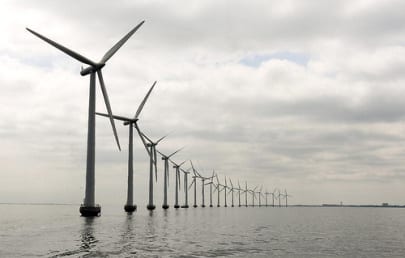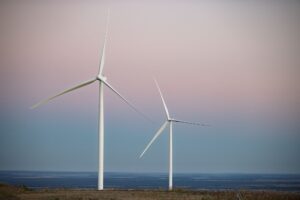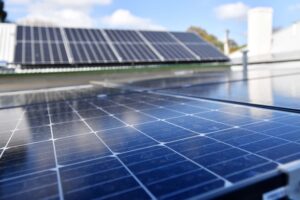Danish power company Ørsted and Tokyo Electric Power Company Holdings, better known as TEPCO, have announced a signed Memorandum of Understanding (MoU) to explore the possibility of and to work jointly on developing offshore wind projects in Japan and around the globe.
While Ørsted’s decision to further expand its developmental reach to Japan is unsurprising – especially considering its already solid foundation in neighbouring Taiwan – the decision by TEPCO is of more interest. That’s because it comes after a similar MoU signed between Japanese rival Electric Power Development Co., better known as J-Power, and French multinational electric utility ENGIE in September of 2018.
The deal also follows plans outlined by TEPCO’s president Tomoaki Kobayakawa in July 2018 to begin developing offshore wind.
TEPCO is the largest power company in Japan, and owner of the ill-fated Fukushima Daiichi Nuclear Power Plant which suffered a catastrophic meltdown caused primarily by a tsunami stemming from the Tōhoku earthquake on 11 March 2011.
Since then, nuclear energy across the country has been shuttered or suspended and plans for a large-scale transition away from nuclear have been the order of the day.
In July of 2018 TEPCO president Tomoaki Kobayakawa, speaking to Nikkei, revealed that his company was looking to develop 6 to 7 GW worth of renewable energy across Japan and overseas. Further, TEPCO intends to focus on offshore wind and hopes to “take up the challenge” of building floating offshore wind – an almost necessary challenge, given Japan’s particular geographical and geological makeup.
TEPCO’s plans have been bolstered by a commitment made by the Japanese Government to increase the deployment of renewables in tandem with legislation passed intended to legislate the designation of large-scale offshore wind development areas.
Specifically, Japan is targeting a target of 10 GW of wind – both offshore and onshore – by 2030 as part of the country’s larger ambition to reach a 22-24 per cent renewable target.
TEPCO has apparently been exploring offshore wind business opportunities in Japan and overseas, which led them to the signing of a Memorandum of Understanding (MoU) with Ørsted – a global leader in the offshore wind industry since it built the world’s first offshore wind farm all the way back in 1991, and which is involved in development in Europe, the United States, and Taiwan.
Specifically, the new MoU will see the two companies work jointly on the Choshi offshore wind project near Tokyo – a project which has already been the focus of TEPCO seabed surveys to explore the feasibility of the project. While no specific capacity figures have been given, Ørsted expects it to be in the hundreds of megawatt range.
“We’re confident that the partnership combining TEPCO’s extensive expertise in the Japanese power business and Ørsted’s unparalleled track record in the offshore wind business will lead to success in the Choshi project,” said TEPCO Representative Executive Officer and President, Tomoaki Kobayakawa.
“We hope that this first step paves the way for expansion beyond the coastlines of Japan for the development, construction, operation and ownership of offshore wind projects.”
“TEPCO is aiming to make renewable energy a core generating source by developing 6-7 GW of renewable energy projects in Japan and overseas. The partnership with Ørsted will provide us with a very strong platform to scale up our renewable energy business as one of our main pillars of business growth.”
“Our vision is to create a world that runs entirely on green energy, and we look forward to expanding our presence in the Asia-Pacific region and bringing over two decades of offshore wind knowledge into this partnership for the Choshi project,” added Ørsted CEO and President, Henrik Poulsen.
“As the largest player in the Japanese electricity industry, TEPCO has deep insights into the local power market and the regulatory requirements. This MoU is the first step in Ørsted and TEPCO’s aspirations to deliver on Japan’s ambitions for domestic renewable power generation at a large scale and contribute to making Japan a leading offshore wind market in the Asia-Pacific.
“We welcome this first opportunity to work with TEPCO and look forward to strengthening our relationship further.”







